NEWARE, as a leading manufacturer of battery testing equipment, our battery tester has always been an excellent test equipment for researchers. The following is a paper presentation of the results obtained by our products to help researchers carry out scientific research.
Title: A LaCl₃-based Lithium Superionic Conductor Compatible with Lithium Metal
First Author: Yichen Yin
Co-First Authors: Jingtian Yang, Jinda Luo, Gongxun Lu
Corresponding Authors: Hongbin Yao , Xinyong Tao, Zhenyu Li
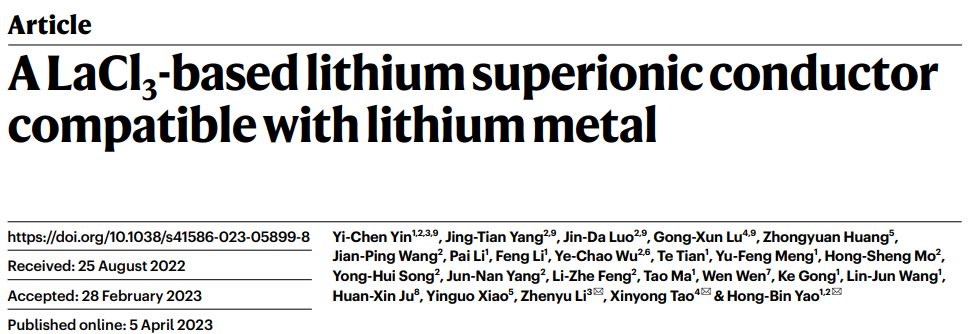
With the widespread application of lithium-ion batteries in various fields, higher requirements have been placed on their safety performance. Among them, the use of all-solid-state lithium metal batteries (ASSLMB) can address the safety and energy density issues of conventional lithium-ion batteries. However, the compatibility between traditional inorganic fast ionic conductors and lithium metal electrodes is poor, despite having high ionic conductivity and good thermal stability.
In light of this, a team led by Hongbin Yao , Zhenyu Li and Xinyong Tao has designed and developed a LaCl₃-based fast lithium-ion conductor with good interface compatibility with lithium metal. Unlike the traditional electrolyte lattice, the LaCl₃ lattice of the UCl₃ type possesses large one-dimensional Li⁺ fast conduction channels. These channels form a three-dimensional continuous Li⁺ migration network and achieve a room temperature conductivity of over 5 mS cm⁻¹ through the two-dimensional interaction facilitated by vacancies introduced by high-valence ion doping. Thanks to the low electronegativity of lanthanide metal elements, as well as the excellent oxidation resistance and deformability of metal chlorides, this type of solid-state electrolyte can directly match with lithium metal anodes and ternary cathodes, enabling the operation of fully solid-state lithium metal batteries without any electrode modification at room temperature. This work has been published in the top international journal Nature, with Yichen Yin, Jingtian Yang, Jinda Luo, and Gongxun Lu as co-first authors.
It is worth noting that Figure 3a and Figures 4a, 4c in the article demonstrate the electrochemical performance of a series of batteries assembled using this electrolyte. All of these electrochemical measurements were conducted using the CT-4000 Multi-Range mA Battery Testing System from NEWARE, a comprehensive and highly accurate battery testing device that is an excellent choice for battery testing.
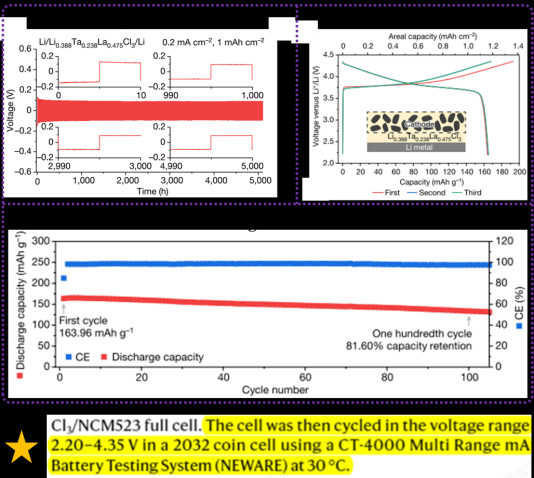
In addition, we also observed that the work tested the temperature-dependent impedance from -40°C to 80°C using the High Low Temperature Humidity Test Chamber from NEWARE. This chamber not only offers multiple temperature ranges to choose from but also effectively controls the humidity inside, facilitating stable and multi-temperature electrochemical performance testing.
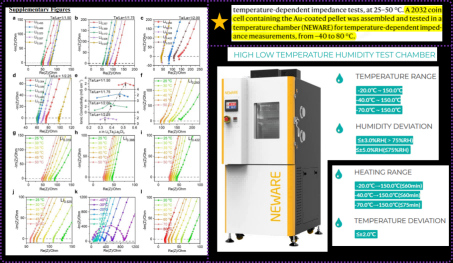
Yin, YC., Yang, JT., Luo, JD. et al. A LaCl₃-based lithium superionic conductor compatible with lithium metal. Nature 616, 77–83 (2023).
https://www.nature.com/articles/s41586-023-05899-8
NEWARE has established an all-in-one procurement platform(neware-store). In this platform, researchers can not only choose to purchase the products they need but also complete cross-vendor purchases in one go, effectively avoiding lengthy procurement procedures and other related issues.
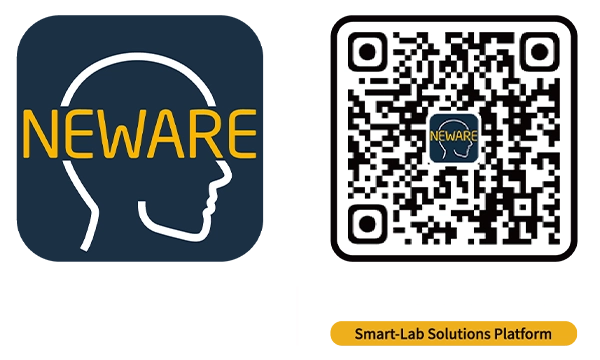


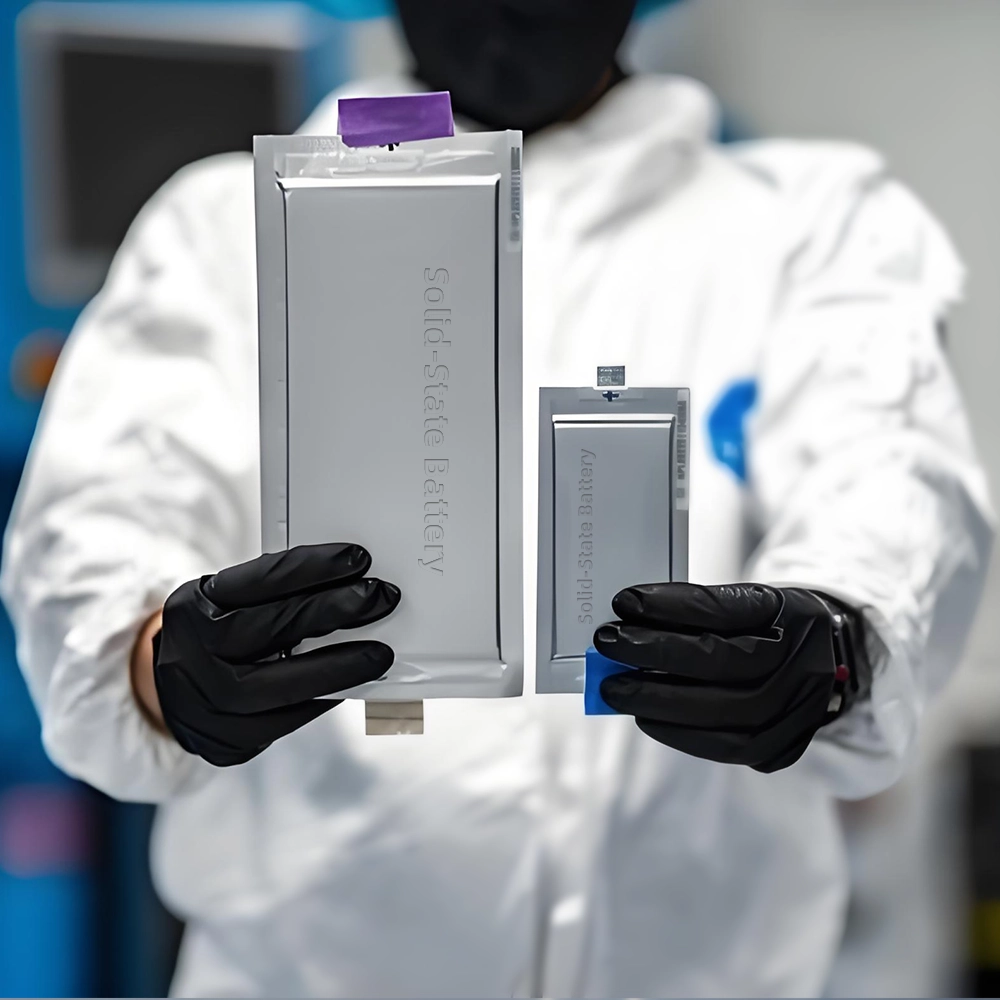
The lab focuses on solid-state battery research to overcome traditional lithium batteries' safety and energy density issues, supporting environmental sustainability. It develops innovative solid-state electrolytes, refines electrode materials, and investigates ion transfer and interface stability to revolutionize battery technology.
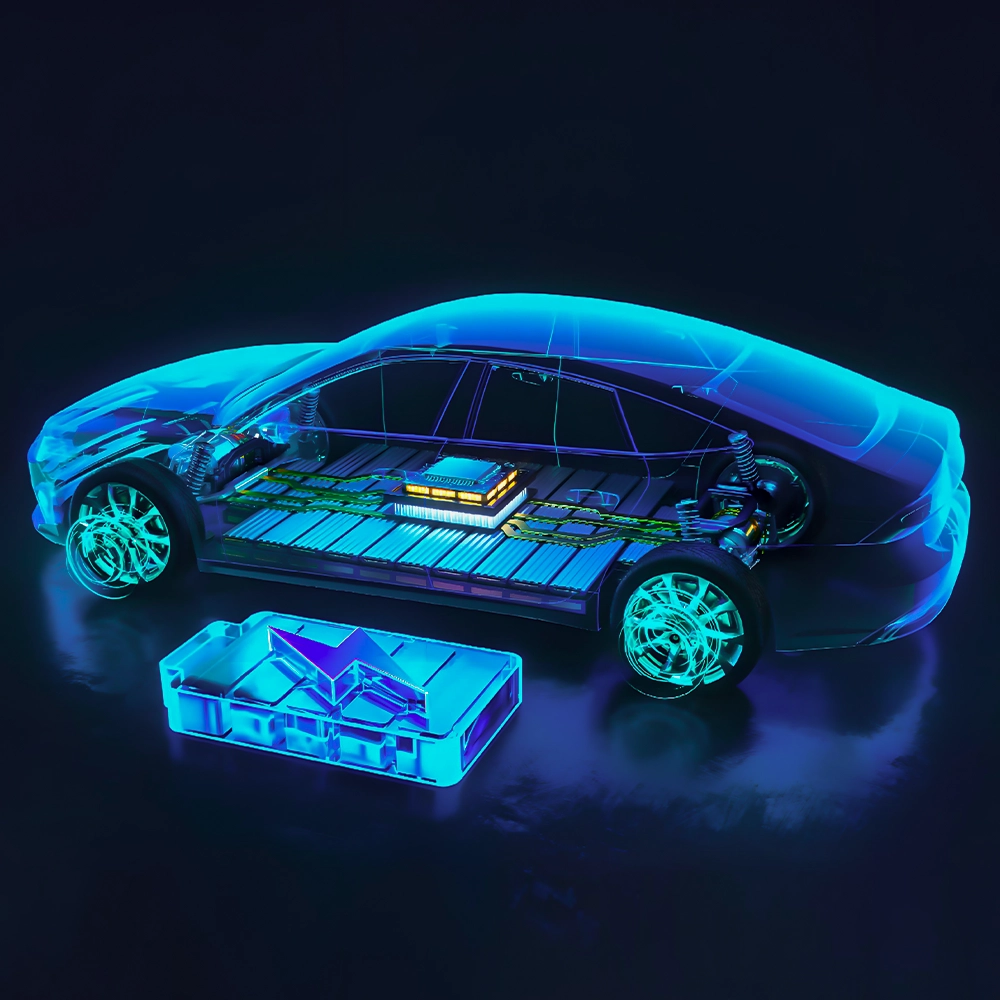
The electric vehicle battery industry is rapidly developing, focusing on technological innovation, market competition, and sustainability. Research hotspots include solid-state batteries, new types of electrolytes, BMS optimization, and recycling technologies. The environmental adaptability, safety, and economic viability of batteries are key research areas, and the industry is expected to undergo more innovation and transformation.
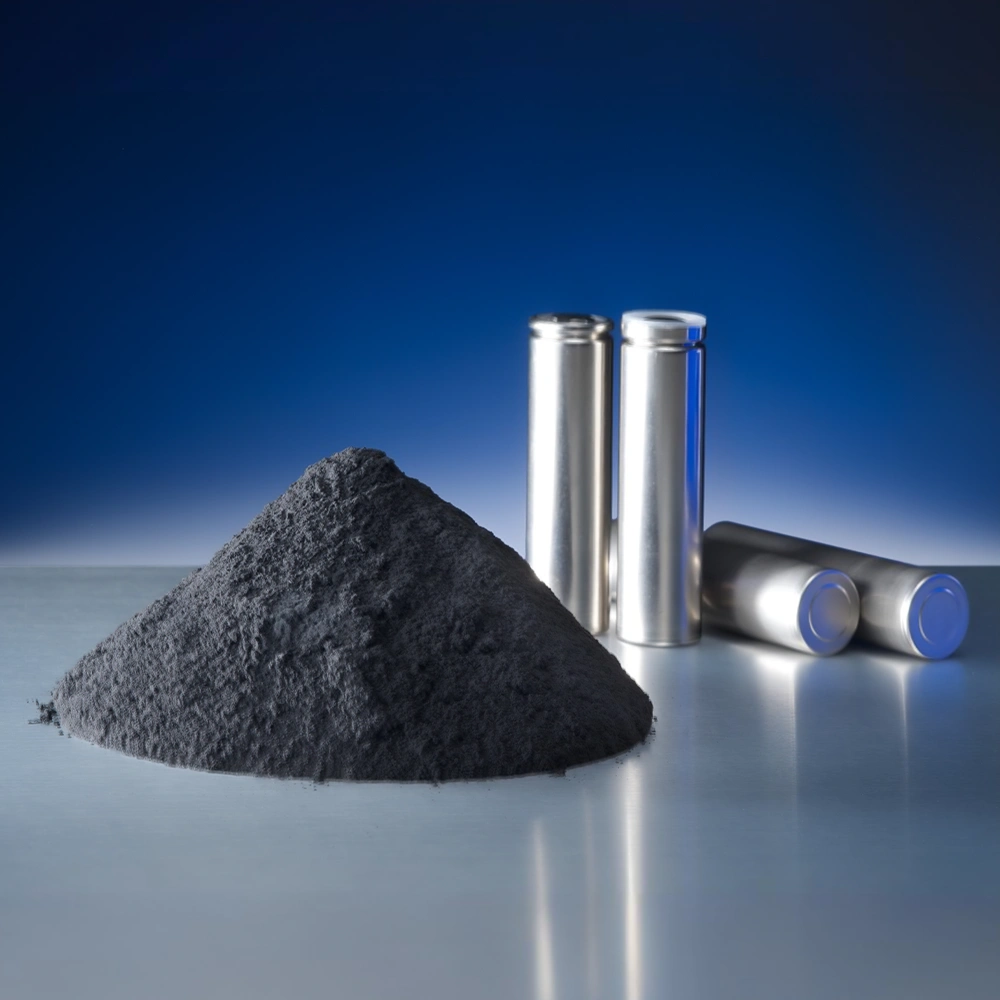
Specializing in battery preparation technology research, the focus is on overcoming existing energy storage challenges by innovating in electrode materials, battery chemistry, and manufacturing processes to improve performance, safety, and reduce costs. Sustainability and recycling technologies for batteries are also emphasized to mitigate environmental impacts and foster the growth of green energy.